 Actividades
Actividades
Seminario: Unlocking the Code: How Math Protects Our Data at Scale
Rashmi Vinayak, School of Computer Science, Carnegie Mellon University.
Lunes 25 de marzo de 2024, 13:40 hrs. (Presencial en Sala Multiusos, Primer Piso Edificio Felipe Villanueva, Facultad de Matemáticas; Link Zoom disponible escribiendo a Esta dirección de correo electrónico está siendo protegida contra los robots de spam. Necesita tener JavaScript habilitado para poder verlo.)
ABSTRACT
The massive data centers storing our information face constant challenges: hardware failures, unpredictable performance, and limited resources. How can we ensure our data stays safe and accessible in this ever-changing environment? This talk explores the surprising power of coding theory, a branch of mathematics that helps us store data efficiently and safely even when systems malfunction. I will start by delving into the basic principles behind coding theory and showing how it is used in modern storage systems. Finally, I will present a peek into cutting-edge research that's pushing the boundaries of data protection with even smarter codes.
Seminario: Métodos de elementos finitos espacio-temporales
Thomas Führer, Facultad de Matemáticas, Pontificia Universidad Católica de Chile.
Miércoles 29 de noviembre de 2023, 13:40 hrs. (Presencial en Auditorio Edificio San Agustín; Link Zoom disponible escribiendo a Esta dirección de correo electrónico está siendo protegida contra los robots de spam. Necesita tener JavaScript habilitado para poder verlo.)
ABSTRACT
Las ecuaciones de calor son las representantes más famosas de problemas parabólicos e hiperbólicos, respectivamente. En la mayoría de los casos, resolver estos problemas de forma analítica es imposible. Por lo tanto, el diseño y análisis de métodos numéricos son extremadamente importantes.
Las discretizaciones clásicas involucran, por ejemplo, elementos finitos en el espacio, y discretizaciones temporales mediante diferencias finitas. En esta charla, exploraremos una perspectiva alternativa al tratar la variable temporal como cualquier otra variable en un dominio espacio-temporal. Discutiremos las ventajas y desventajas, basándonos en las ecuaciones de calor y onda. Además, presentaré resultados recientes sobre la discretización utilizando métodos de mínimos cuadrados, y abordaremos aplicaciones.
Seminario: Probable evidence of a finite-time singularity of the axisymmetric Euler equations for perfect fluids.
Sergio Rica, Instituto de Física, Pontificia Universidad Católica de Chile.
Miércoles 8 de noviembre de 2023, 13:40 hrs. (Presencial en Auditorio Edificio San Agustín; Link Zoom disponible escribiendo a Esta dirección de correo electrónico está siendo protegida contra los robots de spam. Necesita tener JavaScript habilitado para poder verlo.)
ABSTRACT
The search for singular solutions of the axisymmetric Euler equations is realized by expanding the vorticity and swirl velocity in the base of Legendre polynomials. This leads to an infinite non-linear hierarchy of ordinary differential equations (ODEs). In this seminar, we show the numerical robustness of solutions of the truncated hierarchy of the ODEs.
Seminario: "Ecología desde principios primarios (Ecology from first principles)"
Pablo A. Marquet, Facultad de Ciencias Biológicas, Pontificia Universidad Católica de Chile.
Miércoles 11 de octubre de 2023, 13:55 hrs. (Presencial en Auditorio Edificio San Agustín; Link Zoom disponible escribiendo a Esta dirección de correo electrónico está siendo protegida contra los robots de spam. Necesita tener JavaScript habilitado para poder verlo.)
ABSTRACT
En esta charla se presentará una visión general del desarrollo de teorías en ecología, los problemas que se enfrentan y la importancia de desarrollar teorías basadas en principios primarios y expresables en el lenguaje de las matemáticas. Se mostrarán algunos ejemplos de teorías basadas en principios primarios (procesos de nacimiento y muerte) para el caso de la teoría de Biogeografía Insular y la teoría neutral de la biogeografía.
Seminario: Precedence constrained linear optimization and applications in scheduling & mining
Marcos Goycoolea, Escuela de Administración, Pontificia Universidad Católica de Chile.
Miércoles 22 de noviembre de 2023, 13:40 hrs. (Presencial en Auditorio Edificio San Agustín; Link Zoom disponible escribiendo a Esta dirección de correo electrónico está siendo protegida contra los robots de spam. Necesita tener JavaScript habilitado para poder verlo.)
ABSTRACT
We examine a class of mixed integer linear programming problems characterized by having a large set of precedence constraints and a small number of additional, “arbitrary” side constraints. These problems, which in a way are “almost” totally unimodular, are applicable in a wide array of scheduling tasks, including the well-known Resource-Constrained Project Scheduling Problem (RCPSP). RCPSPs and their variants are known to be extremely difficult to solve in practice. Moreover, they are of particular importance in the field of mining, where the scale of the problems can involve hundreds of millions of variables, posing a challenge for standard commercial solvers.
In this talk will describe these precedence-constrained optimization problems and discuss how understanding the optimal solution structure can inform the creation of specialized linear programming techniques that are more scalable than traditional algorithms. We will also describe new classes of cutting planes to strengthen linear relaxations. Applications of these methods will be showcased, ranging from scheduling for open pit and underground mines to adapting to uncertainties and integrating environmental objectives into scheduling practices.
This is joint work with Patricio Lamas, Eduardo Moreno and Orlando Rivera.
